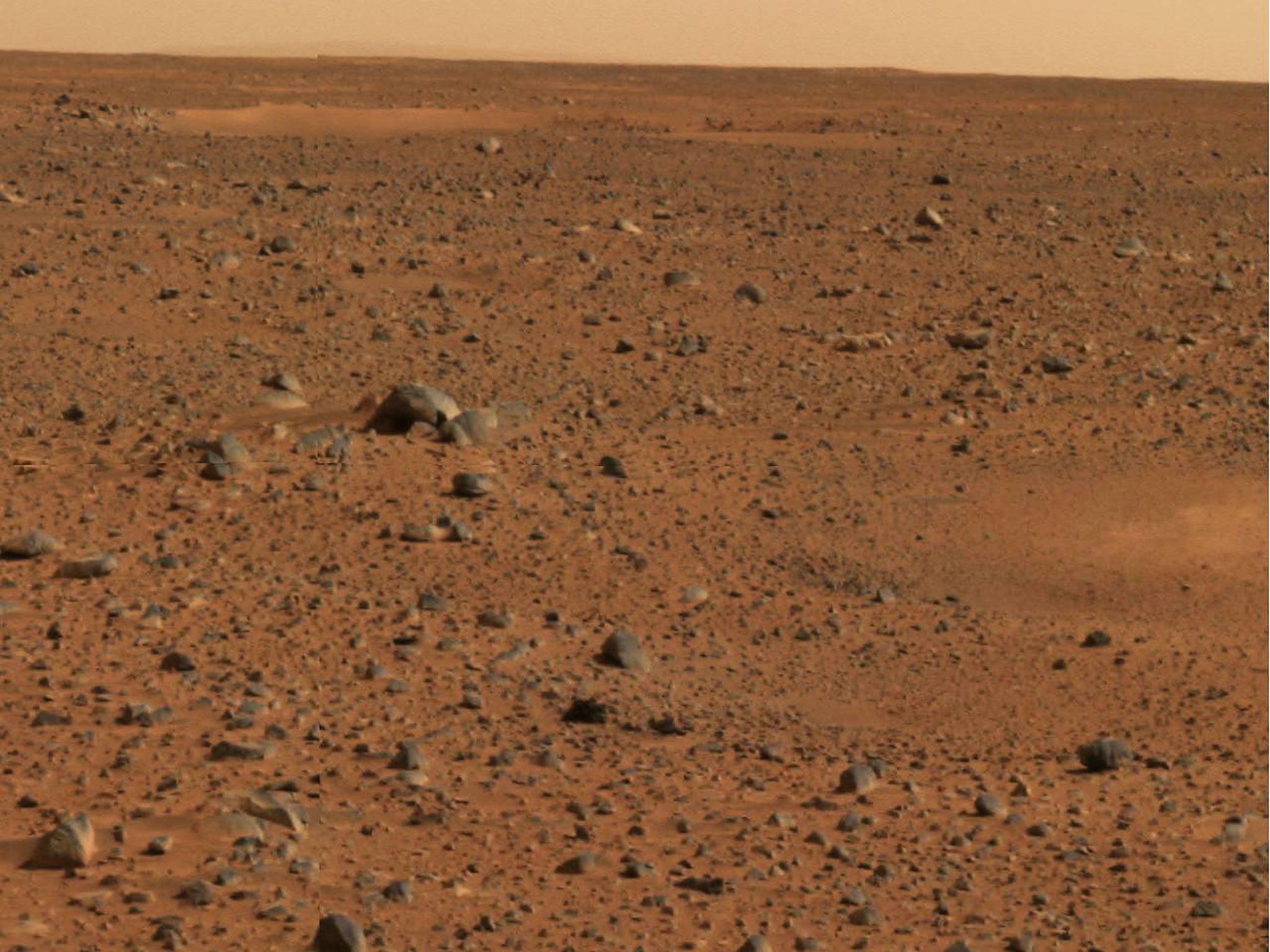Water on Mars: Nasa Curiosity rover discovers brine substance in soil
There is already overwhelming evidence that rivers and lakes once existed on the Red Planet

A new twist on the idea that there could be water on Mars has emerged from data collected by the Nasa Curiosity rover indicating that liquid brine may be ubiquitous across the surface of the Red Planet.
Scientists have detected the presence of a chemical substance in the Martian soil that absorbs water vapour from the atmosphere to form a brine that keeps being a liquid even when temperatures on the planet fall below the freezing point of water.
Although liquid water is deemed essential for life, the researchers said the discovery has no immediate implications for the possible existence of microbial life forms on Mars as cosmic radiation bombarding its surface would make be it too hazardous for living organisms to survive.
However, they said future space missions to Mars will have to consider taking precautions against any saltwater in the Martian soil as the brine could be “very corrosive” and could eat into any permanent structures built on the surface for future manned missions.
There is now overwhelming evidence that rivers and lakes once existed on Mars many hundreds of millions of years in the past, but that most of this water was lost into space, leaving behind a dry, cold and barren planet. Scientists estimate that Mars had about seven times as much water 4.5 billion years ago as it does now, but this disappeared when the planet lost its protective magnetic field.
However, the Curiosity rover, which has been exploring the Gale crater on Mars just south of the equator since it landed there in 2012, has discovered evidence for the existence of water vapour the Martian atmosphere which can be absorbed by a perchlorate substance on the Martian surface to form a salty brine which acts as an antifreeze.
In pictures: Mars Exploration Rover
Show all 12“We have discovered the substance calcium perchlorate in the soil and, under the right conditions, it absorbs water vapour from the atmosphere,” said Morten Madsen of the Niels Bohr Institute at the University of Copenhagen, who was part of the research team that analysed the Curiosity data.
“Our measurements from the Curiosity rover’s weather monitoring station show that these conditions exist at night and just after sunrise in the winter. Based on measurements of humidity and temperature at a height of 1.6 metres and at the surface of the planet, we can estimate the amount of water that is absorbed,” Professor Madsen said.
“When night falls, some of the water vapour in the atmosphere condenses on the planet surface as frost, but calcium perchlorate is very absorbent and it forms a brine with the water, so the freezing point is lowered and the frost can turn into a liquid,” he said.
“The soil is porous, so what we are seeing is that the water seeps down through the soil. Over time, other salts may also dissolve in the soil and now that they are liquid, they can move and precipitate elsewhere under the surface,” he said.
The study, published in the journal Nature Geoscience, suggests that in the past there was a large standing lake filling the Gale crater, which would account for the layers of sediments detected by the Curiosity rover on its journey to Mount Sharp, the mountain at the centre of the crater.
“Very fine-grained sediments, which slowly fell down through the water, were deposited right at the very bottom of the crater lake. The sediment plates on the bottom are level, so everything indicates that the entire Gale crater may have been a large lake,” Professor Madsen said.
Subscribe to Independent Premium to bookmark this article
Want to bookmark your favourite articles and stories to read or reference later? Start your Independent Premium subscription today.

Join our commenting forum
Join thought-provoking conversations, follow other Independent readers and see their replies